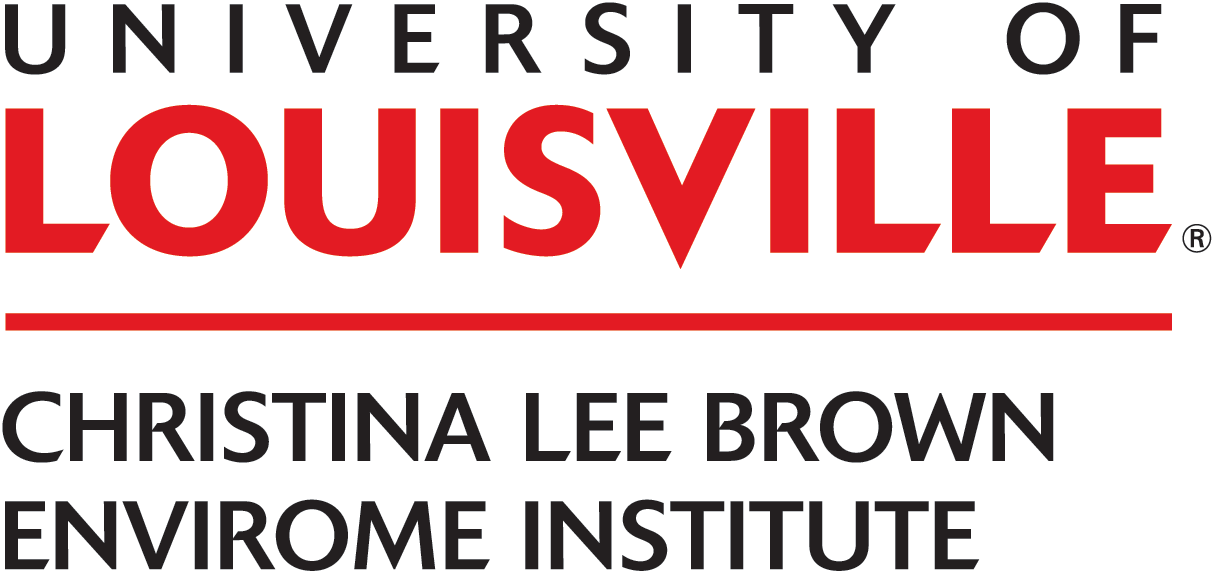Co-Immunity Water Study
Water Study and Dashboard |  |
|---|
Sewer Monitoring
The Sewer Monitoring portion of the Co-Immunity Project uses wastewater-based epidemiology to monitor the presence of SARS-CoV-2 in Louisville's sewer system. When people are infected with the SARS-CoV-2 virus they shed the virus through stool even if they are asymptomatic. Stool then enters the sewer system, resulting in the presence of the virus in wastewater.
This phase of the Co-Immunity project is conducted in collaboration MSD, Sanitation District 1 in Northern Kentucky, Kentucky Waterways Alliance, and the Center for Predictive Medicine. This work is based on Arizona State University’s prior research in developing water testing methods for indicators of cardiovascular disease for our Green Heart Project.
This type of research is called wastewater-based epidemiology (WBE). WBE looks for evidence of human disease in sewer water. Scientists analyze which microbes and chemicals are in sewers and how much is there. It is a way to learn about the health of the people that live in the nearby area.
Kentucky Public Health Laboratories Wastewater Collaborative (KPHLWC)
The collaborative works to advance understanding of wastewater analysis supporting SARS-CoV-2 and other non-SARS-CoV-2 targets and supports fundamental and early-stage research collaborations within Kentucky. Learn more about the KPHLWC.
Published Research
- Surveillance of RNase P, PMMoV, and CrAssphage in wastewater as indicators of human fecal concentration across urban sewer neighborhoods, Louisville, Kentucky
- Wastewater sample site selection to estimate geographically-resolved community prevalence of COVID-19: A research protocol
- High-throughput sequencing of SARS-CoV-2 in wastewater provides insights into circulating variants
Community Engagement
Sewer Monitoring Research Ethics
Issues of privacy or stigmatization pose potential concerns for research, data collection, and analysis of wastewater. However, through the assurance of anonymous results, the protection of identifiable information, and diversity of selected sampling sites, the Co-Immunity Project has incorporated ethical approaches to their work which safeguard the safety and well-being of individual privacy in effective ways.We are committed to adjusting our own principles and adopting new guidelines into our studies with the intent of promoting equity and inclusivity in the realms of medicine and public health. Read more about how we think about sewer monitoring as a public health strategy.
Sewer Monitoring Dashboard
See sewer monitoring results. Since June 2020 Louisville’s Metropolitan Sewer District (MSD) and Louisville Metro Public Health and Wellness (LMPHW) have partnered with researchers from the University of Louisville's Envirome Institute to learn how sewage may indicate community health risk. We have collected over 1,000 samples from sewers at 17 sites across Louisville looking for SARS-CoV-2, the virus that causes COVID-19. Together with county level clinical data, our sewers are helping us get a better picture to understand infection rate changes in large population centers of Louisville.
Sewer Monitoring FAQs
Read these frequently asked questions about sewer monitoring in Louisville.
2021 Community Outreach Recap
Our goal is for our research to be transparent and for the Louisville community to understand what we are doing, why, and what it means to them. During 2021 the Sewer Monitoring team was joined by a student associate from UofL's Department of Philosophy who helped the team understand potential ethical issues around this type of research and to outreach to the public in responsible and clear ways. See this 2021 Community Outreach Recap to see the variety of ways that the team shared about our work across Louisville.
Studying Wastewater
Read about our wastewater research in the New York Times.
In partnership with Louisville’s Metropolitan Sewer District (MSD), Envirome researchers are using automated, 24-hour composite samplers to collect wastewater from 16 sites across Louisville. In the lab, researchers look for evidence of SARS-CoV-2 RNA in the collected samples. We will compare this analysis with community and healthcare worker testing results to gain a better understanding of infection hotspots and spread.
Co-Immunity is monitoring wastewater for the presence of the SARS-CoV-2 virus to validate the individual testing conducted in the Healthcare Worker Study and the Community Study, to increase the reliability of our findings, and increase the resolution of findings at a lower cost than repeating individual testing. By comparing multiple datasets we can cross-validate each approach and have more confidence in our findings. This process could even form the basis of a new cost-effective method for monitoring infection that can inform policy decisions and other community-wide interventions.
Testing wastewater allows Co-Immunity to increase the resolution of our findings. While we can only test people for COVID-19 infection every 8 weeks, we are sampling wastewater from 15 locations twice per week. In these samples, we look for changes in the amount of genetic material (RNA) from the SARS-CoV-2 virus. This analysis allows us to identify geographic and demographic factors that could contribute to outbreaks. Comparing wastewater and testing results will also allow us to refine our models to consider local, seasonal, and sporadic variables that affect infection rates.
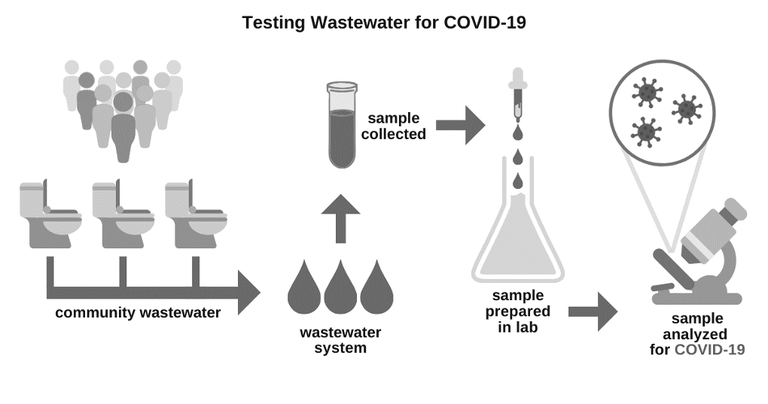
Studying Surface Water
Kentucky Waterways Alliance and UofL's School of Urban and Public Affairs are leading Co-Immunity's Surface Water Study. The team includes University of Louisville’s Sustainability Director Dr. Tamara Sluss and KWA intern, Cullen Hunter, are testing for the presence of SARS-CoV-2 in surface water.
KWA is monitoring areas of interest along Beargrass Creek because of their proximity to combined sewer overflows (CSOs) and areas of recreation. During heavy rains a CSO may occur as a result of water from storm drains (stormwater) and wastewater from the sewer system combining and spilling into local waterways such as Beargrass Creek. KWA hopes to learn more about how much, and if any SARS-CoV-2 is found in surface water near these CSOs. We are gathering information about the wastewater sewersheds overflowing into Beargrass Creek to better understand the risks associated with this novel virus and our waterways. As the project and sampling moves forward, KWA hopes to expand to more sites across the city.
While the risks that SARS-CoV-2 may cause for recreational activities associated with the waterways is still uncertain, sewer overflows still present other safety concerns such as fecal coliform bacteria, E. coli, and others. MSD monitors these overflows and issues advisories when the waterways are not safe for recreation.
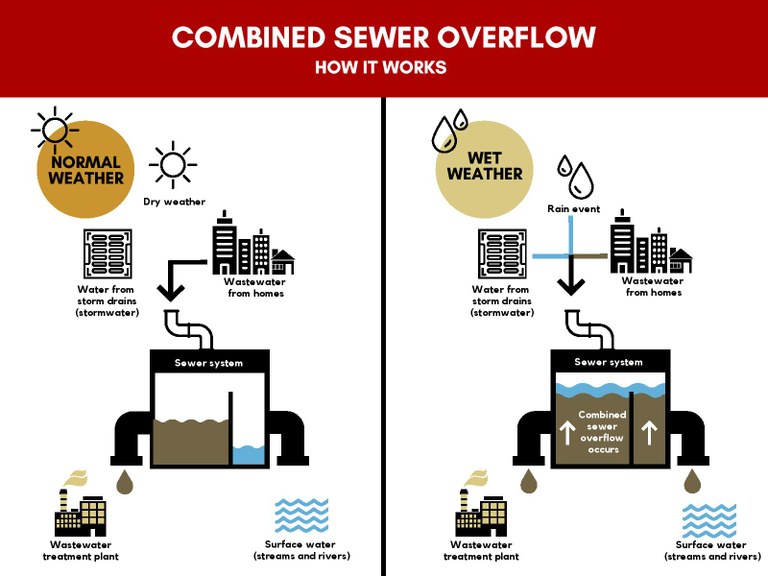
Wastewater Sample Collection
The Co-Immunity wastewater study is looking for SARS-CoV-2 in Louisville’s sewers.
We are testing water from 16 sites across Louisville. Sites include large treatment plants, pumping stations, and manholes within our community. | 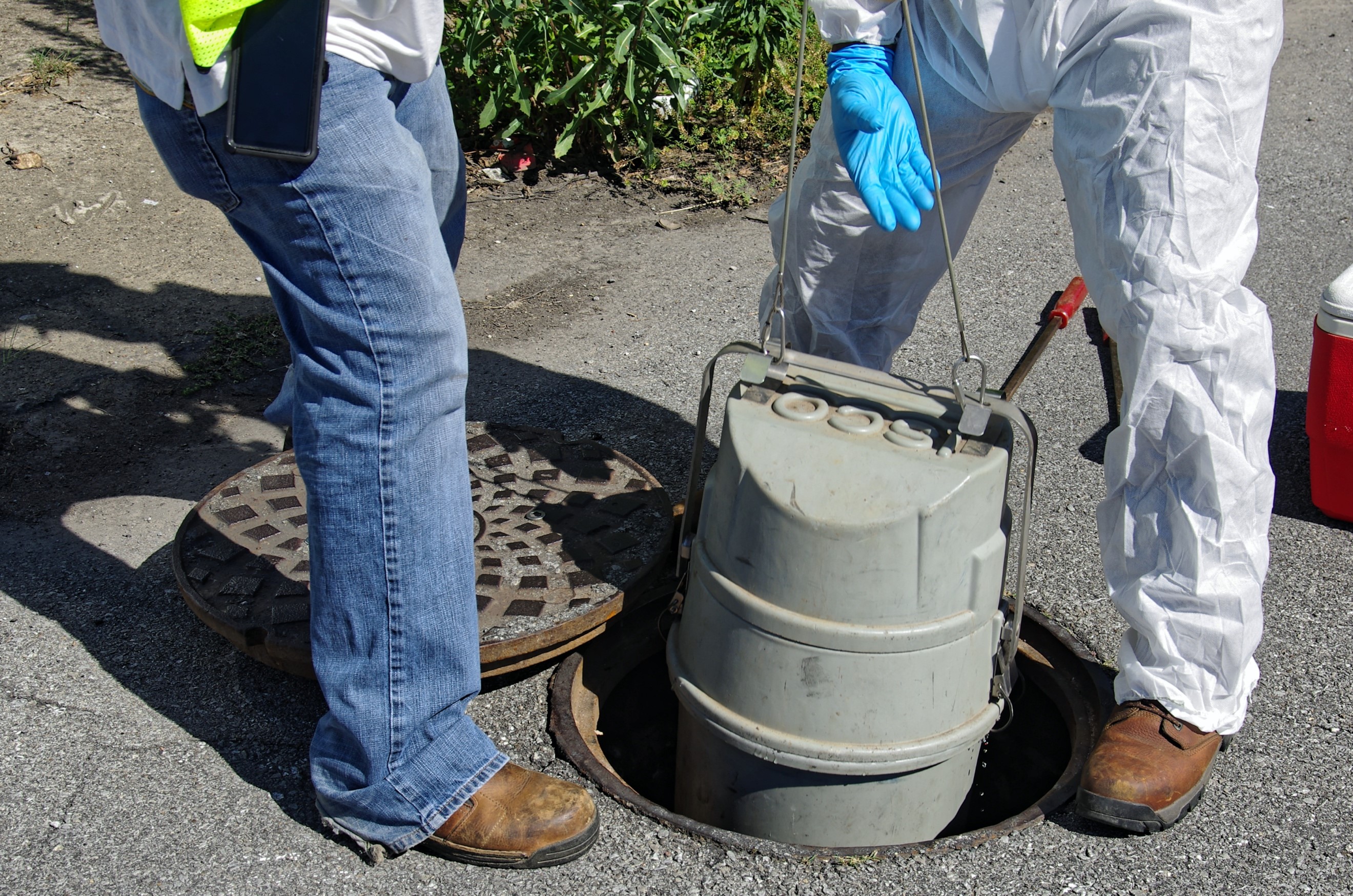 |
This is a composite sampler collecting a sample from a manhole in the street. The composite sampler is a battery-powered pump that collects a sample for 24-hours with a small tube that reaches into the sewer.
The research team visits each site twice a week to collect samples and take them back to the lab at UofL. | 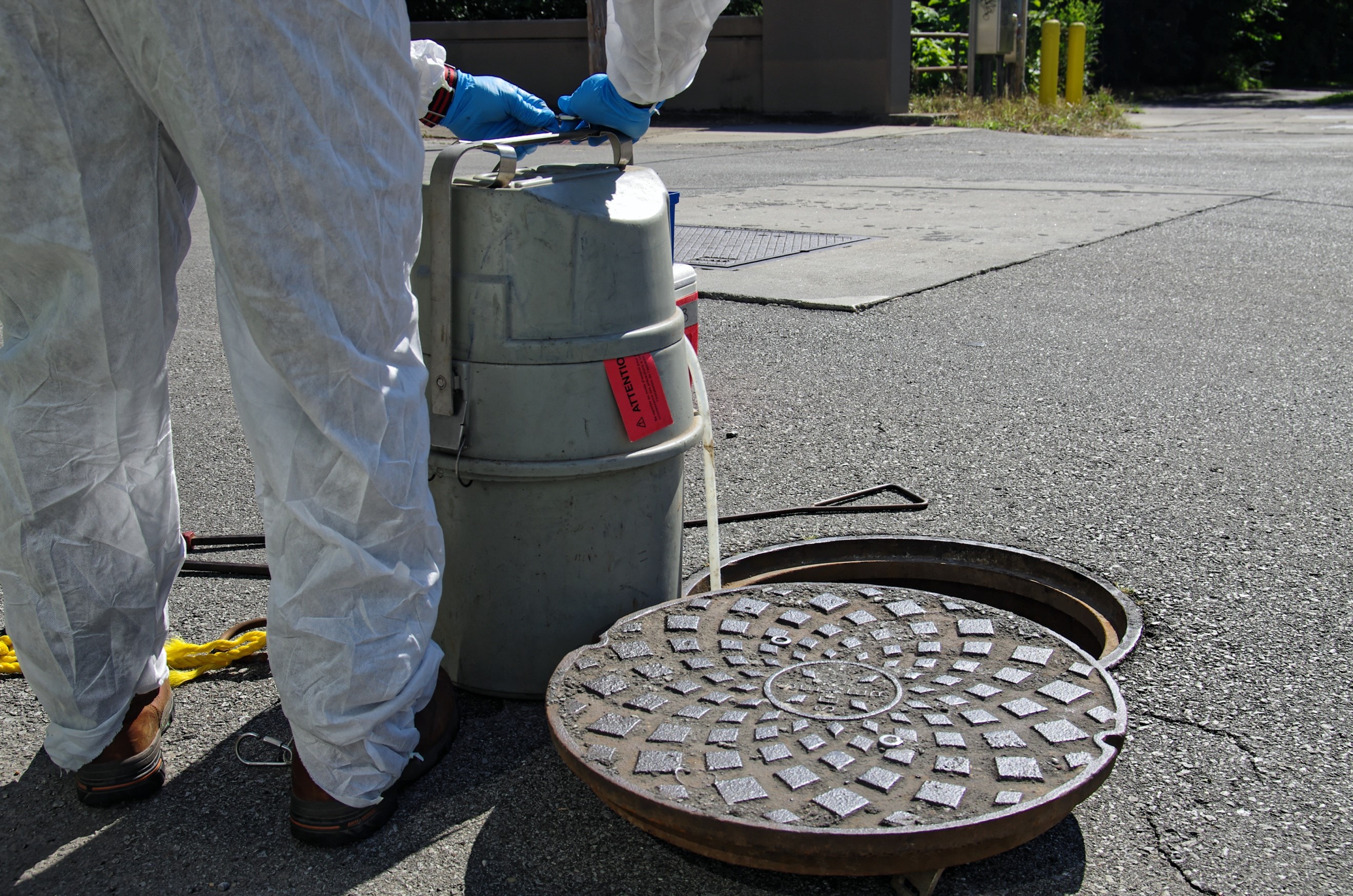 |
The research team pumps samples of the sewer water into labeled containers for lab analysis back at the University of Louisville.
The lab will look for genetic evidence (RNA) of the SARS-CoV-2 in these samples.
The amount of RNA present in the wastewater will be linked to the the area serviced by that sewer area and allow comparison of different areas of Louisville. | 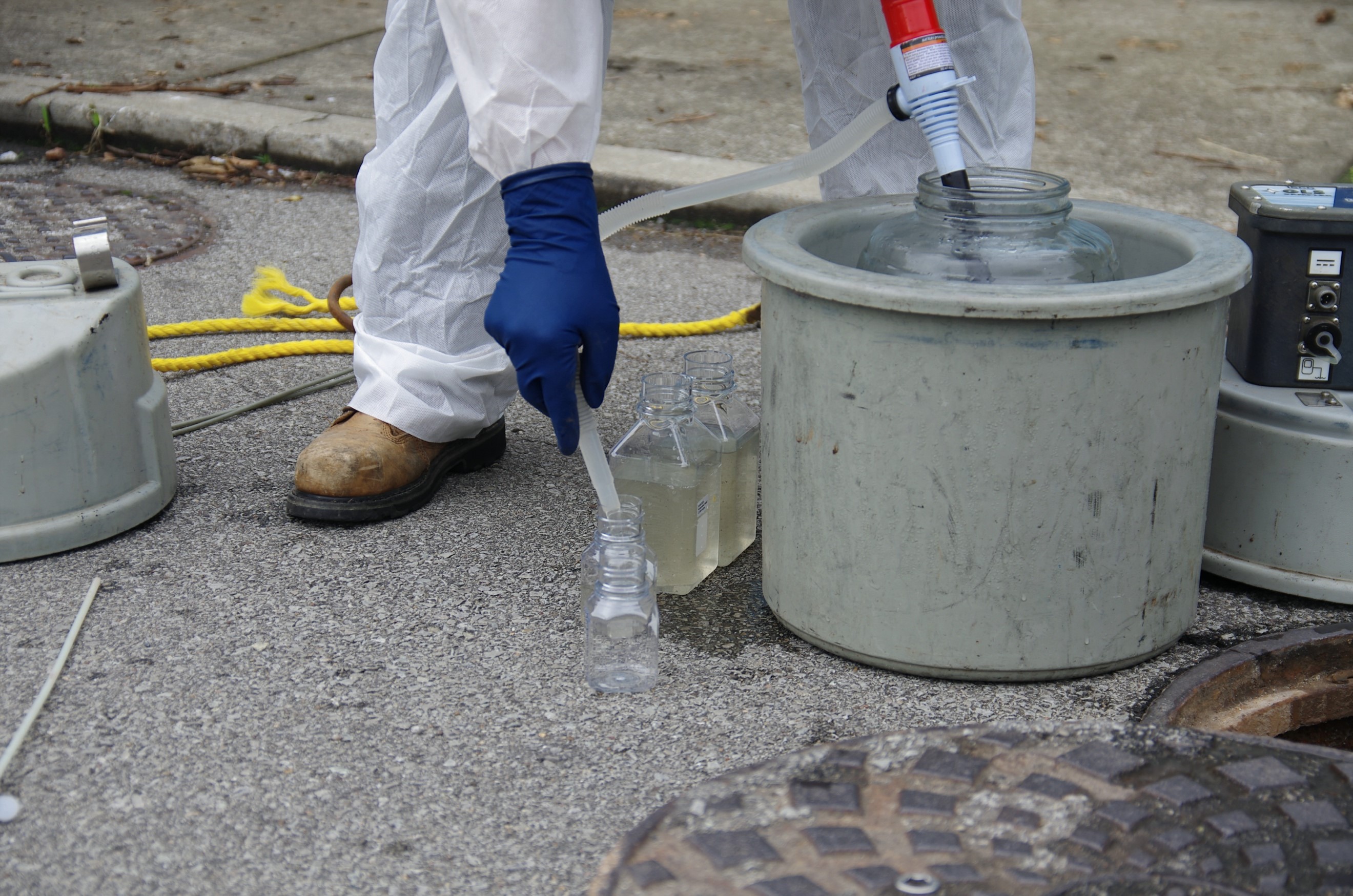 |
| By looking at samples over time, we hope to learn how SARS-CoV-2 moves in Louisville and develop strategies to predict and manage future outbreaks. | 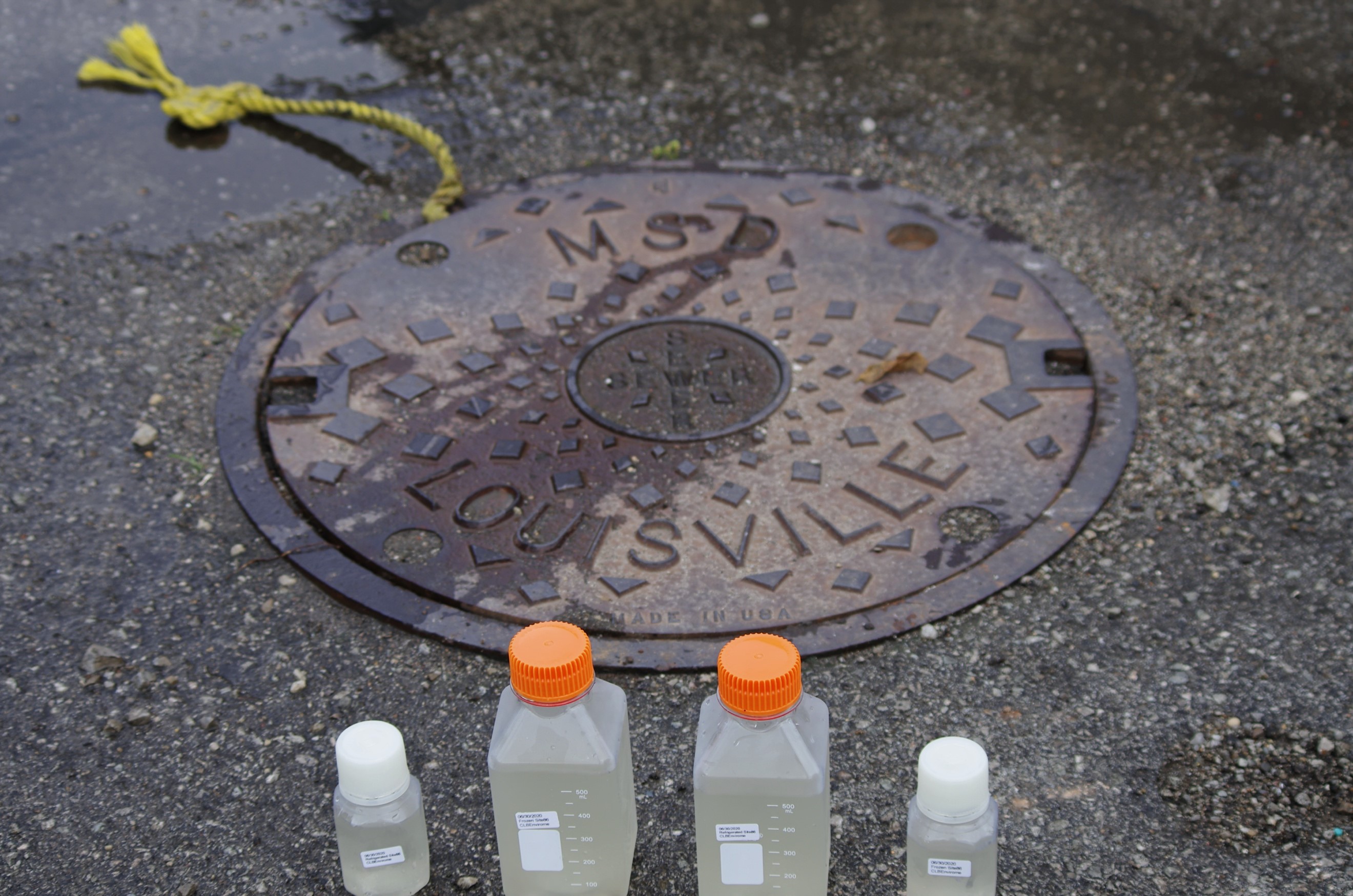 |
The Wastewater Team

Dr. Rochelle Holm leads the sewer monitoring team.
Rochelle Holm (PhD, PMP) received her doctoral degree in Environmental Science from Washington State University in the United States. She works primarily on issues of waste, sanitation systems, hygiene and rural water supply. Her nearly 20 years of experience has focused on bridging the gap across boundaries of research and innovative practice by working together globally with communities, officials, academics and analysts.
Wastewater Research in the News
2022
- WHAS 11, Omicron surge may have peaked in Louisville
- WLKY, Louisville's COVID-19 hospitalizations hit all-time high amid surge from omicron variant
- LEO Weekly, Metro Public Health Says 1 In 15 People In Louisville Could Have COVID
- Forward Kentucky, What your poop is saying about COVID
2021
- WAVE3, Omicron detected in Louisville; variant could become dominant strain within weeks
- Courier-Journal, 'It's a serious situation': Omicron variant confirmed in Jefferson, three other counties
- Spectrum News, Omicron detected in Louisville, Northern Kentucky, likely to spread fast
- WFPL, Omicron variant confirmed in several Kentucky counties
- Courier-Journal, First case of omicron variant of COVID-19 found in Louisville, health officials say
- WDRB, First cases of omicron variant confirmed in Jefferson County, other Kentucky counties
- WFPL, Louisville wastewater shows high levels of COVID, but not omicron
- WRDB, UofL researchers testing wastewater samples for omicron variant
- WFPL, Researchers say omicron variant not yet found in Louisville wastewater
- Spectrum News, UofL increases wastewater testing to search for omicron
- Wave3, Louisville area health leaders bracing for omicron variant
- WDRB, MSD testing Louisville wastewater
- WAVE3, Could the COVID Lambda variant be a problem for holiday plans?
- WKLY, UofL secures record amount of funding to continue COVID-19, cancer research
- WHAS11, UofL researchers track delta variant with wastewater testing
- Fox Lexington, COVID-19 lambda variant found in Louisville wastewater
- WBRD, Louisville health officials concerned about possible spread of COVID-19 Delta variant
- WLKY, Louisville could become only city in U.S. to document herd immunity -- with help of wastewater
- WAVE3, Brazilian Variant of COVID-19 Found in Louisville's Wastewater
- UofL News, UofL receives $8.6 million from the CDC for COVID-19 wastewater research
- WDRB, California COVID-19 variant detected in Louisville
- UofL News, MSD and UofL testing Louisville wastewater to track COVID-19
More COVID-19 WBE Resources
- Preventing Scientific and Ethical Misuse of Wastewater Surveillance Data
- Targeted Wastewater Surveillance at Facilities, Institutions, and Workplaces
- Developing a Wastewater Surveillance Sampling Strategy
- Wastewater Surveillance Testing Methods
- Wastewater Surveillance Data Reporting & Analytics
- Public Health Interpretation and Use of Wastewater Surveillance Data
Contact
For more information please email envirome@louisville.edu
